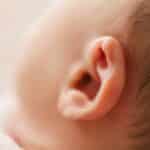Every child is unique. They learn to walk at different times. Even siblings don’t have anything in common when it comes to the day they begin to walk.
A baby learning to walk is something many parents look forward to as their child grows. Recording the moment in the video as their baby takes their first steps is the parent’s handbook.
It passes so quickly when it comes, and the incredible part is that it can literally happen anywhere. May it be in the park during a picnic or at the daycare with friends.
Once your kid is a walker, he doesn’t go in the other direction. In fact, the learning curve is quite rapid, and they practically go from crawling to walking in a matter of days.
If you recently had a baby, get ready for this amazing time. Root your child on as they dash ahead to their walking years.
Most parents wonder when their kids will begin walking because it’s such a big milestone. When does a baby start walking, how will I know my baby is ready to walk? Is there a one size fits all routine to little babies walking?
There is no one size fits all when it comes to a walking baby. Some go from crawling to running. Some are one-year-old, and some take as many as 18 months to take their first steps.
And some babies need a lot of extra support to walk. No matter how a baby develops positive encouragement, and love is the most important energy a new walker needs to keep the enjoyment of physical activity up.
The Extreme Go-getters Are The Early Walkers
Or, should we say the super possible ‘genius little human walking machines’? It has been seen for some 6-month-old babies to get up and go, though this is pretty unusual to witness.
Babies who walk this early on are paving the way for babies who begin walking during the average timeframe of around 9 months.
If your son or daughter has started walking as early as 6 months, it means that their motor skills utilized during walking are well ahead of the game. Maybe they had a very encouraging environment towards enhancing their muscles used in walking.
It doesn’t just involve muscle groups to be an early walker though. It involves keen eye-development, working in part with the hands. These fine-tuned motor skills can set your baby up for early walking.
View in gallery
According to Parents.com, future success can also be in plan with early walkers. Babies who begin walking unusually early have a track record of higher cognitive and memory test scores around the age of 4-years-old.
Researchers concluded that more studies need to be done on this interesting subject.
Still Considered An Early Walker
At 9 months of age, parents discuss that their kids are early walkers. It’s earlier than the average age babies will take their first steps.
My own children started walking well after the age of one and a half. I can understand how a nine-month-old running around can seem strange.
Nine-month-old babies are still fairly petite. They look tiny walking next to their parents. This is most likely to be the earliest your kid begins walking.
Long before a baby starts walking, they’re practicing various other motor skills that will assist their future walking adventures such as lifting their head, strengthening their core and back muscles, hand-eye coordination, and much more behind the scenes.
A 9-month-old certainly has gotten quite a bit of practice with these finer-motor skills.
The Average Time Babies Begin To Walk
Anytime after 9 months of age is when most parents will jot down in the baby book that their child started walking, which is a good thing to have on hand for these moments.
One day your kids will most likely ask you what day and age they started walking. I asked my own mother this once I started having my own kids.
I wanted to predict when my babies would start walking, which turned out to be more fun than correct hypothesizing.
View in gallery
Most babies start walking on their own about 2 or 3 months after they stand up for the first time. Write that milestone down in your baby book too!
The latest you can expect your baby to walk is 18 months, and also a very appropriate time for the first steps.
Do Personality Interests Affect Walking Age?
While all babies are eager to walk once they get a taste for it, some babies just have other interests.
Maybe they’re super focused on eating, and love to be drinking milk and eating snacks. This doesn’t make them lazy, but it can take away from their practice sessions that are geared towards walking.
Babies do have distinct personalities, and it’s important to encourage your child in ways that make them feel good. If they don’t seem interested in walking right now, just let it be.
I’ve found there is no reason to force any milestone in a baby. They literally are in charge of their lives. We’re just there to keep them safe and loved throughout the process.
A Word From Parents Of Today
We looked to mom.com to see what real-life parents were saying about their children learning to walk, and the age they started mastered it.
Britni D., mother of one says:
“Our daughter has always been one to do thing’s on her own and only when she was absolutely ready. Her first steps happened when we were on a family vacation when she was 14 months old. Though, I wouldn’t say that she “walked” until almost a month later. She cruised furniture or insisted on having our hands to hold, feeling the need for stability.”
Claire Z., a mother of two says:
“Our son taught himself to walk around a pool table while we were at a party and not paying him any attention. He was 17 months.”
A mother of one who is an earlier walker, Amy P., states:
“My daughter started walking along the walls in our house when she was 9 months old, then took her first steps between her dad and me – arms outstretched like a zombie, opening and closing her hands as she gripped her toes on the ground – on Easter when she was 10 months.”
Signs Your Baby Will Walk Soon
Change in sleep patterns
If you find that your toddler is a bit fussier, needing extra sleep, and having other massive developmental leaps, walking could be just around the corner. Wailing shows that their brains are firing at an all-time high.
View in gallery
That type of growing demand for the child means they will possibly need extra naps and more calories to accommodate their firepower.
Listen to your baby’s behavior, and be sure to provide the nourishment necessary to keep your baby as content as possible.
They stopped just pulling up and now cruise…fast
They now cruise the household, if you know what that term truly entails. “Cruising” is referred to as toddlers who are using tools like walkers or a cardboard box to help them run around the house.
This kind of behavior surely indicates that the child is just about ready to trust their own balance and walk without any help.
Remember that babies will cruise on any and everything they can hold onto. Be aware of potted plants and breakables they might push over during a test run.
Cruising is a positive sign of independently walking and should be encouraged at all costs. It’s our job as parents to just create a safe haven for our children to have the proper environment when reaching this milestone.
When it’s time to cruise, it’s time to – Go Go Go! Be ready for that while out shopping too.
Using assistance to walk around
Giving your child safe, age-appropriate, tools to walk around with is a very important step to them reaching the phase of walking alone. This means items like play carts with wheels or a rope that they can hold one end of and you the other.
We aren’t talking walkers and smaller baby products that encourage walking. But, more advanced everyday items, that simulate the environment where they can easily let go of these items and just keep walking.
Noticeable increase in performing dangerous stunts
With enhanced confidence comes more dangerous stunts for parents to have a near heart-attack over.
Yep, when you catch your baby climbing the bookshelf, or jumping off the highest point of the playground he once didn’t, this means your child is finding new eagerness to expand his motor skills.
Directed the correct way, this can be a great thing for toddlers learning to walk. Just remember, for toddlers to walk on their own they have to be able to have self-awareness and confidence to do so.
Ways To Encourage Your Baby To Walk
Give them props for their hard work
Praise your new little one, when you give positive praise they feel it. That support from parents they love sticks with them.
Sure enough, it encourages them to keep doing the things they might be nervous to do otherwise. Give a helping hand when they are in need, then let them run-free while they are gleaming in successful moments.
Throw in a few challenges
Take your baby who has already succeeded in walking on flat surfaces to a nearby hill outside, have them walk, or attempt to run up and down it next to you. You’d be surprised at how much muscle and skill this instills in your baby, quickly.
[amalinkspro type=”showcase” asin=”B08CZW5XQ7″ apilink=”https://www.amazon.com/dp/B08CZW5XQ7?tag=mominformedcom-20&linkCode=osi&th=1&psc=1″ new-window=”true” addtocart=”false” nofollow=”true” sc-id=”4″ imgs=”LargeImage” link-imgs=”false” specs=”Perfect movement development toy for kids and toddlers. This is a perfect Set with 3 different goods Pikler Arch, ramp and pickler triangle climber. So your children can choose which one he wants to use.~~~Interesting , exciting toy for your kid slide, where they can spend hours and hours while playing with it.~~~If you will have this waldorf toys in your home , you can be shore that you and your adult friend can spend nice evening together, because all your kids will be take away in this toy.~~~” btn-color=”#ff9900″ btn-text=”Buy on Amazon” alignment=”alignnone” hide-prime=”0″ hide-image=”0″ hide-reviews=”0″ hide-price=”0″ hide-button=”0″ width=”750″]Pikler Triangle for Kids Toddlers Rock with ramp[/amalinkspro]
Ramps, hills, and baby-safe trail walks are helpful for exposing them to more challenging terrain.
Lead by example
Play follow the leader, or mamma duck and baby ducks. These games will have them mimic your exact movements. You can throw in a jump, step, step, or a sprint then slow walk to introduce them to other aspects to walking around.
Have them hold onto your hand, and take them for walks with you on routes they enjoyed in their stroller.
Falls need attention too
Man down, man down! That’s a good way to put it when your child has a fall. Make your response light when they have a spill – that way they know they can thrive after falling down.
View in gallery
When parents make falls sound big and scary, then children who are learning to walk are timider when getting back to it.
Falls are survivable, and we should help them with a collected reassuring voice, or something funny if there’s no blood. I would often make funny faces with my own kids after they fall.
And we just talk through the process of caring for the injury. This makes it easier once they’re older as well, teaching them independence overall.
Do Babies In Other Parts of the World Walk Sooner?
Parenting Science mentions that researchers report that babies in other countries and cultures also experience their babies learning to walk between the age of 9-18 months. And 12 months of age to be the most approximate age little ones begin walking.
Though, in certain countries and even certain regions, there have been reports of babies learning to walk sooner or later than the most popular age of 12 months.
One study based in Switzerland found that just a few babies began walking at 8.5-months-old and then most of the other babies in the region didn’t take their first steps until 20 months of age, which would be on the latter end of the spectrum in the US.
What makes the biggest difference for these cultures isn’t easy to pinpoint, because most of the children involved in the studies turned out to have a very healthy developmental process.






